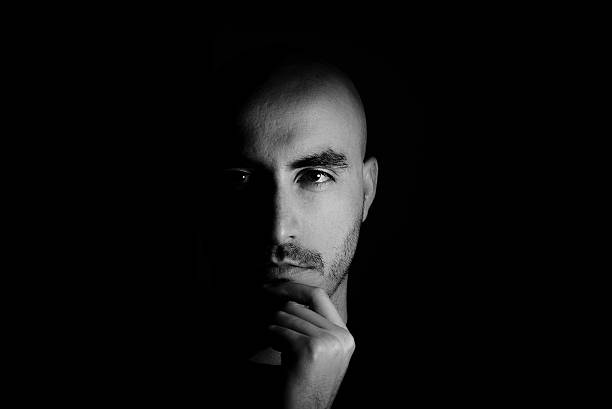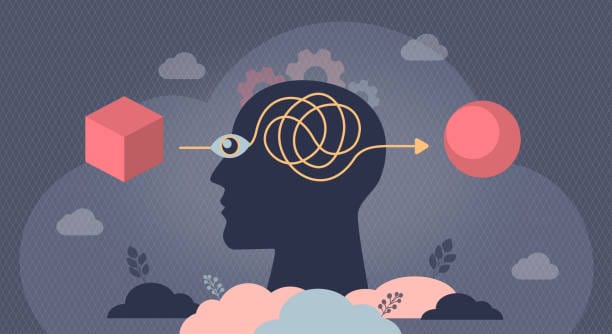In the sprawling maze of human attraction, what guides us toward love, lust, or fleeting passion? A new study published in Sexual and Relationship Therapy dares to peek into the darker corners of the psyche to find some surprising answers. According to the research, it isn’t narcissism or cunning manipulation that most strongly predicts someone’s openness to casual, uncommitted sexual encounters—it’s psychopathy.
Yes, that’s right. Among the infamous trio known as the “Dark Triad”—narcissism, Machiavellianism, and psychopathy—it is psychopathy alone that consistently forecasts a person’s willingness to engage in no-strings-attached sex. And the more benevolent side of human nature? The so-called “Light Triad” traits, rooted in compassion and moral character, don’t seem to matter much at all once the darker traits are accounted for.
This research, led by Betul Urganci, an assistant professor of psychology at Koç University, offers a revealing glimpse into how personality traits sculpt our sexual desires and decisions. It challenges long-held assumptions about what drives people to pursue casual sexual relationships—and whether kindness really counts when it comes to lust.
When Personality Meets Passion
Humans have always differed in their approach to sex and intimacy. Some seek deep emotional connections and long-term commitment. Others find thrill in more casual encounters, free from the expectations of lasting attachment. Psychologists call this range sociosexuality—a person’s openness to, and comfort with, uncommitted sexual relationships.
Sociosexuality isn’t just about what people do—it encompasses how they feel and think. There’s behavior (how often someone engages in casual sex), attitude (whether they morally or emotionally approve of it), and desire (their fantasies or impulses). These dimensions make sociosexuality a rich and complex trait to study.
Previous research has shown that the Dark Triad traits—narcissism, Machiavellianism, and psychopathy—are linked to higher sociosexuality. But the problem? Most studies clump these traits together, making it unclear which ones are actually doing the heavy lifting. And what about their sunny counterparts—the Light Triad traits, like kindness, altruism, and faith in others? That side of the personality spectrum has been largely ignored.
Urganci and her team decided it was time to unravel these traits and test their individual influence on sociosexuality. They also wanted to know whether these effects looked different in men and women.
The Study: Peering Into the Minds of 308 Adults
To answer these questions, the researchers recruited 308 adult participants through Amazon Mechanical Turk. They completed validated surveys measuring Dark Triad traits, Light Triad traits, and their sociosexual orientation.
The participants were mostly heterosexual and roughly balanced by gender. They answered questions about their sexual behavior over the past year, their comfort level with uncommitted sex, and how often they fantasize about sex with people they don’t have a romantic connection with. They also shared demographic details like age, gender, and relationship status so the researchers could account for those factors in their analysis.
At first glance, the data seemed to confirm what previous studies have hinted at: all three Dark Triad traits—narcissism, Machiavellianism, and psychopathy—were positively linked to openness toward casual sex. But when the researchers dug deeper and controlled for overlap among the traits, a different picture emerged.
Only one trait stood out. Psychopathy.
Why Psychopathy Wins the Battle of the Dark Traits
“Only psychopathy, not narcissism or Machiavellianism, emerged as a unique predictor when we included all three Dark Triad traits in the same model,” Urganci explained in an interview. “This suggests that there’s something specific about psychopathy that aligns with greater sociosexuality.”
So what does psychopathy actually mean in this context?
Psychopathy, as measured here, doesn’t necessarily refer to violent or criminal behavior. Rather, it reflects a personality profile that includes impulsivity, emotional detachment, low empathy, and thrill-seeking. These traits, the researchers argue, naturally lend themselves to a mating strategy centered on novelty, sensation, and less concern for emotional consequences.
People high in psychopathy may simply be less constrained by the potential emotional fallout of casual sex. They’re also more likely to take risks and chase excitement—qualities that make uncommitted sexual experiences more appealing and accessible.
In contrast, narcissism, which involves a need for admiration and inflated self-worth, and Machiavellianism, which centers on manipulation and strategic deceit, didn’t hold up under the microscope when psychopathy was taken into account.
The Lighter Side Falls Short
What about the Light Triad traits—those warm, humanistic qualities we often associate with moral goodness?
The researchers measured three key components of this more prosocial personality cluster: Humanism (valuing the dignity of others), Kantianism (seeing people as ends, not means), and Faith in Humanity (believing in the fundamental goodness of people).
While some initial correlations suggested a negative relationship between these traits and sociosexuality—meaning, people high in Light Triad traits were slightly less open to casual sex—those links faded when the researchers controlled for the darker traits.
“We initially expected that the Light Triad traits would predict a lower tendency toward casual sex,” Urganci said. “And while we did find some weak associations, they didn’t hold up once we accounted for the Dark Triad and other variables.”
There was one minor exception: among men, having greater faith in humanity was modestly associated with less sociosexual behavior. But the effect was small and not observed in women.
Not a Judgment, Just an Observation
It’s tempting to interpret these findings as a value judgment—that those who enjoy casual sex must be less moral or more emotionally detached. But that would be a mistake.
Sociosexuality, like most psychological traits, exists on a spectrum. People have many reasons for their preferences—some rooted in biology, some in culture, some in personal experience. And while psychopathy may be statistically linked to greater openness to casual sex, it’s not the sole determinant. Nor does it mean that all individuals high in psychopathy behave the same way.
“This doesn’t mean everyone high in psychopathy behaves the same way,” Urganci emphasized. “But it does suggest that certain personality traits are linked to specific relationship strategies.”
In other words, psychopathy may tilt the scale, but it doesn’t decide the outcome.
What This Means for Understanding Human Mating
The study provides a clearer picture of how our personalities influence the way we pursue intimacy. It also offers a sobering reminder that empathy and kindness—while deeply important in many domains of life—may not be the key drivers of our sexual strategies, at least not in the way we might expect.
That insight has implications for everything from dating app algorithms to relationship counseling. It could help psychologists, sociologists, and everyday people better understand the complex dance between personality and sexual behavior.
But Urganci also urges caution. This was a self-report study, which means the results depend on people’s honesty and self-awareness. It was also cross-sectional, meaning we can’t say for sure whether personality traits cause changes in sexual behavior or vice versa. And the sample was mostly White, heterosexual, and in relationships, which may limit how widely the findings can be applied.
“I’m interested in expanding this research cross-culturally,” Urganci said, “to examine how social and cultural norms interact with individual differences to shape mating behaviors.”
Sex, Self, and the Science of Desire
At the end of the day, this study adds another layer to our understanding of human sexuality—one that doesn’t shy away from the darker aspects of personality. It challenges the romantic notion that sex is always driven by love, intimacy, or moral alignment. Sometimes, the pull comes from elsewhere: a hunger for novelty, a detachment from emotional consequences, a thrill that overrides reflection.
As science continues to explore these hidden contours of the human psyche, one thing becomes clear: our desires are as varied and complex as the people who feel them. And in those desires, we find not just the blueprint of our biology, but the story of who we are—and who we might become.






